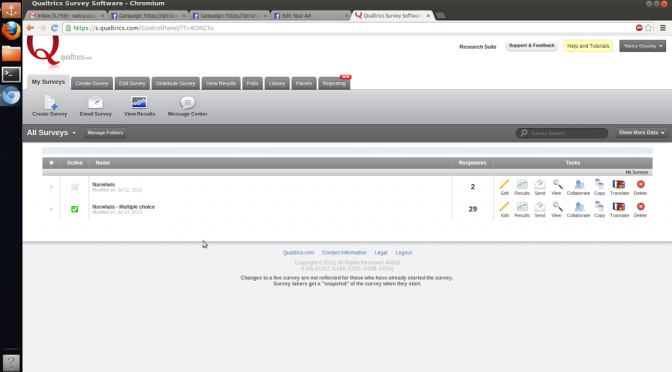This post is a recap of what I have learned in the Global Founders’ Skills Accelerator I am participating in with my startup, NarwhalEDU (narwhaledu.com) over the last week. I am writing this up in the hopes that it will be useful to other new startup founders as a reference point. Some things are only relevant if you are open sourcing, if you have more than one founder, and other caveats of being the experience of a single person in a single company at this accelerator.
Lawyers
Founder’s Agreement and Equity Split:
Determined by factors such as replaceability of founder (e.g. technical knowhow), how much a founder is investing in the company monetarily, basically a really fluid of trying to determine how much a founder contributes to the company over time.
Vesting schedule — so that the equity / shares are earned over time, in case one founder decides to leave. Recommend 3 years, although investors will push for 4 years
1 year cliff — in case a founder leaves early on, their shares do not vest
C Corp vs LLC
C Corp in Delaware — recommended because that is what investors expect
vs. LLC — for tax purposes, can offset business losses against personal income for tax gains, but investors will not accept it if you ever take outside investment (so more suitable for lifestyle businesses, e.g. never plan on taking outside investment, not really aiming for exponential growth, longer-term are all used as criteria but I think the main one is not planning on taking outside investment.)
It is much easier to go from LLC to C Corp (about 5k costs) than the other way around
Fees
We’ve gotten quotes ranging from $2000 to $5000 for the standard incorporation and founder’s agreement and a set of template documents. There is an additional 250-500 in filing fees. e.g. if you do a Delaware C Corp every year there is $500 in fees to have a registered agent there.
Packages
Some firms offer this, some offer “flexibility” and haven’t started using the term package yet. But basically, firms will offer anywhere from full deferment of fees until you are “successful” (e.g. have raised a major round, are making over a million in sales, etc.) to 50/50 split (so pay 50% upfront, keeping you honest about controlling your spending) to a flat fee. So in a sense you are pitching to the law firms that offer packages.
How it works
What tends to happen is you will interview with the super expensive lawyer (ranging from $250 – $800+), then depending on your company you will get a team of 2 to 3 people: a junior associate (in the $500 range) and paralegals / secretaries (in the ~$100-300 range). These people charge less per hour and so the law firm tends to pitch this as being cost efficient.
Why a lawyer when there is legalzoom.com?
We asked one lawyer this question. She said that lawyers can provide business and legal advice, especially after working with startups for over a decade. When there is more than one founder, make sure that everything is agreed to properly. In general, it seems to be the thing to do at the accelerator so we are running with it, although I suspect there is a bias towards “startup” and not “lifestyle business” that a legalzoom LLC might be appropriate for.
Why incorporate so soon?
Put your IP into a company instead of into individual hands, and then can decide to open source it or license it however you want. Prevents one founder from forming their own competing company. (?? still a bit confused as to how this applies to open source hardware).
Open Sourcing and EdTech
http://stallman.org/articles/online-education.html The end conclusion is to NOT use a creative commons noncommercial use only license.
Capitalization
After incorporating, have to put some money into business to make it an actual business. Within 30 days, need to fill out 83B form.
Pricing
Often engineers go for cost-based pricing. Not the best idea. Consider instead the amount of value provided to the customer and getting an appropriate fraction of that. In particular, I have heard that in software the most money comes from subscription-based models. This is because the customer does not know the full value of the software initially and actually gains a lot of value over time, and the subscription model captures more of this value than an upfront pricing model.
Pricing! Okay, let’s go into how to do pricing surveys. In an ideal world, you do randomized questions with at least 30 responses each.
DO NOT ask the customer “how much would you pay for this product: $100, $150, $200?” because that is not how we make decisions in real-life — this feels like bartering, so the customer’s answers will be influenced by their bartering. Instead, randomly present them with one choice and ask them a simple yes/no.
To do this, I used qualtrics software, a trial version.
Then, to get survey responses, I used facebook.
The going rate seems to be about $1 per survey answer.
I put the max bid at 50c per click.
Click through rate: ~1%, e.g. if 1000 people see your ad, ten people will click through. Of that, maybe 2 people will actually answer the survey (that would be pretty ideal).
I had this 1 dollar/answer my first and second days but on the current day (day 3) it seems to have shot up to almost 3 dollars per answer ;__; hopefully the next few days will even this out, or perhaps weekends are just better for people clicking through and deciding to actually answer the survey.
This is called the “taxi meter” effect, something you have to beware of in pricing, that the customer is not constantly focused on whether they are getting the value they paid for out of your product (e.g. if you priced weekly or monthly instead of yearly).
Marketing
Pick up the phone and call!
Have the whole company focused on the same metric — something everyone can work towards. e.g. number of sales
Always be helpful, e.g. even if you are not immediately knowledgeable on a topic, you can answer forum posts / emails with a bit of google searching.
Should be more time than money initially, as you do labor-intensive one-on-one direct sales.
Personalization of emails is important (e.g. with their name) (for mailing lists, use mailchimp)
Other recommended software: HARO, grasshoper, Highrise CRM, google analytics, mailchimp
Testimonials are important! If they are above the fold, can lead to 10-15% increase in conversions.
Start a blog right away! Short posts just to get over the hurdle of getting started. Basically free marketing by establishing yourself as an expert right away.
Conclusion
There’s lots more, but I think that’s a good amount of information for one post. Please feel free to contact me or leave a comment if you have any questions.
Oh! One thing — if you’re affiliated with MIT, sign up for the MIT Venturing Mentoring Service. They will offer free legal advice sessions (make sure to sign up for the mailing list) and a whole host of other benefits (e.g. matching you up with mentors and you set the schedule as to when you meet).







